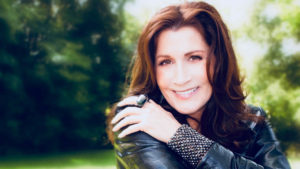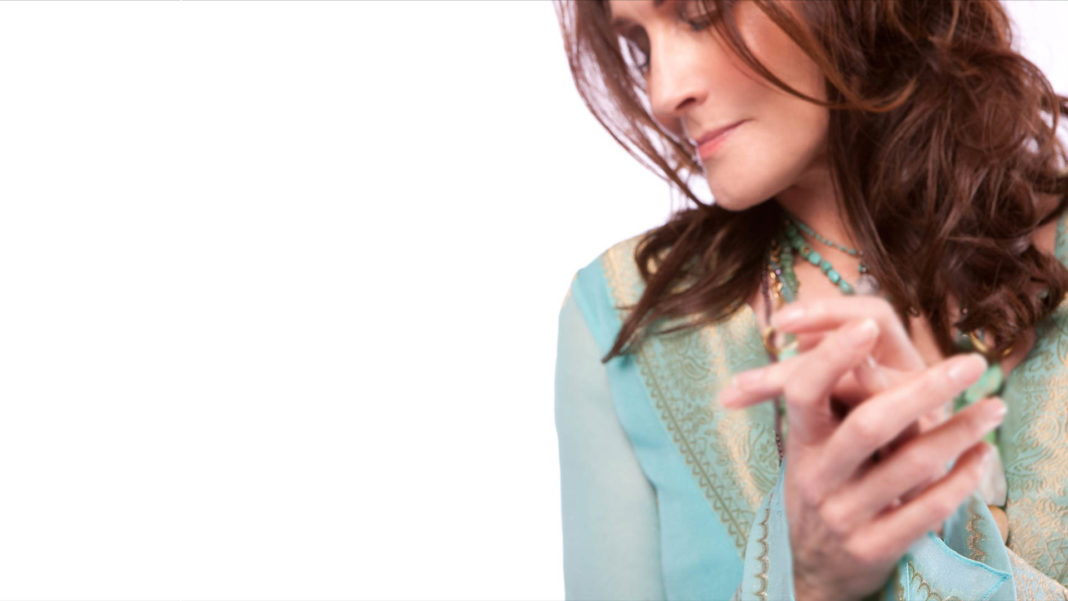Vocalist Monica Mancini has appeared throughout Los Angeles as part of numerous shows. In 2018 she appeared as a special guest at the Hollywood Bowl to celebrate the 55th anniversary of The Pink Panther and its music, written by her father, composer Henry Mancini. Later that year she had her first headlining concert in over 20 years at The Soraya in Northridge. This Sunday she will appear once again at the Hollywood Bowl to celebrate the her father’s 100th birthday in a concert entitled Opening Night at the Bowl: Henry Mancini 100th Celebration.
Also appearing on the program are Michael Bublé, Cynthia Erivo, Dave Koz and members of the Youth Orchestra Los Angeles (YOLA). They will all be accompanied by Thomas Wilkins leading the Hollywood Bowl Orchestra.
Six years ago I spoke with Monica Mancini about her father, what he’d think of her career and more. With this Sunday’s concert fast-approaching, I’ve expanded the previous post to include new material not previously published before.

I recently spoke with Mancini, or Monica as she insisted, a couple days in advance of the concert. We talked about her father, his work and what she learns from his music.
You broke out from the world of back-up singing into a soloist after your father passed away. Does that seems like an odd way to launch a solo career?
It’s true. It’s what happened. In a heartbeat I’d give it all up if he was sill around. I would. It’s just kind of the way life rolled in this case. It is a gift. Our music, this generation of music, the Mancini generation, they aren’t making them like that so much. I enjoy continuing a legacy and reminding people how great this music is.
We live in a culture where if it didn’t happen ten minutes ago you hear the refrain, “that was before my time.” What are the challenges in reaching out to younger audiences who may have no idea who Henry Mancini was?
It isn’t even that young anymore. It blows my mind when someone is 40 and I say “Do you know who Henry Mancini is?” and they shrug. If I say “Do you know the theme to The Pink Panther?” they respond with “I love that song.” His name isn’t a household word anymore. I don’t know what to say or do anymore. I think singers like Lady Gaga and her artistry would appreciate being able to sing a really good song.
Michael Bublé gave the Mancini’s a boost when he did Call Me Irresponsible. We try to always get Dad’s songs when an album was coming up. Gregg Field, my producer and husband, played on Barbra Streisand’s The Movie Album. He brought dad up to James Brolin and she added Moon River.
Though you sing a wide range of songs, you’ve spent a good amount of time celebrating your father’s work. How much work does it take you as a singer to find your own personal way into his songs?
This is still a work in progress. I’ve been singing his music since he passed away [in 1994]. The following year I was given an opportunity to do some tribute concerts. I was a studio singer. Id din’t have designs on being a solo singer. But given the opportunity, it’s been really nice.
I’ve been honing that all these years. I’m still wanting it to be the perfect interpretation. It’s not like I’m flailing, waiting for this inspiration. I’m very happy with my performances of his music. He wrote such beautiful melodies to sing and worked with these awesome lyricists. It’s fun to sing and it’s worth exploring the lyrics a little bit more because some of them are so deep and wonderful.
Does Henry Mancini the film composer take a back seat to Henry Mancini the songwriter?
No because truly when he went to score a film, he went to score a film. Let’s use Moon River. He didn’t set out to write a hit song. He didn’t set out to write Moon River. That was part of the score and part of the job – finding a theme and finding something for Audrey Hepburn to sing. It was a bonus he could write hit songs. I think the process and his whole joy of scoring films kind of was equal to the charge of having a hit song.
I think the process and whole joy obscuring films was equal to the charge of having a hit song. He never talked about it, but I can only surmise. But I don’t think one took a back seat to the other.
One of the films he did was Victor, Victoria. That film took risks when it was released in 1982 in depicting gender and sexuality issues. Why do you think that film still resonates and is still funny and moving?
It’s a perfect movie. It’s brilliant and it’s Blake Edwards at his finest. I was a huge James Garner fan. I could watch him sit and breathe. And Robert Preston. These people are little gifts and you don’t see the likes of Garner or Preston anymore. Their era is gone. Obviously the music is cool. During the film dad was very healthy. But when he was writing the show for Broadway, that’s when he got sick. I was doing demos for Julie Andrews so she could hear the songs. I was close to that experience back then. I don’t know why, but it is just the little perfect movie.
You once told the New York Times that when you asked your father if you could join his shows as a singer he told you, “I work alone, kid.” What do you think he’d say about the career you’ve created for yourself?
He’d say “Never mind.” He would just be a blubbering puddle in the audience. He was always very proud of me. I’ve come a long way from my demo days and It think he would be extremely proud. He was never one of those guys who insisted that any of us go into the business. It wasn’t anything he thought, “I hope my children live up to…”
If he was around he’d be doing it himself. The fact that I’m so at home with his music and I sing it so often – he’s never that far away. I’m not a big believer in heaven and “daddy’s looking down on you.” I’m not there. I hold him. I know where he is in me.
This story was originally published in October of 2018 and has been updated with additional material.












